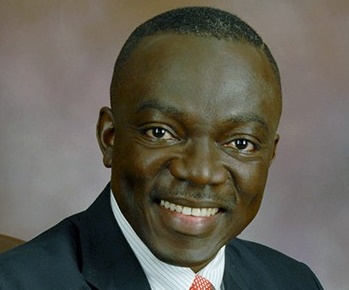Contrary to popular pontifications, the global community should not expect wide scale access to a safe and efficacious SAR-COV-2 vaccine before December 31, 2020, Professor Douglas Boateng, a global supply chain and logistics expert, has warned.
There are currently over eight vaccine candidates undergoing phase three clinical trials. They include novel products from University of Oxford/AstraZeneca, Sinovac, Wuhan Institute of Biological Products/Sinopharm and Beijing Institute of Biological Products/Sinopharm, Moderna/NIAID and BioNTech/Fosun Pharma/Pfizer. It is hoped that at least one of these vaccines will get regulatory approval from amongst EU bodies and US FDA by year end.
Based on extensive practical global experience within the global pharmaceutical and vaccine manufacturing sector, Prof Boateng agrees with several leading experts including US director of the National Institute of Allergy and Infectious Diseases, Dr. Anthony Fauci who continues to caution world leaders that a Coronavirus vaccine will most likely not be available on a mass scale for the entire global community by December 31, 2020.

“Dr. Fauci is right when on July 7th he also predicted that the world will know the safety and efficacy of the various vaccine candidates in clinical trials only at the end of the year and during 1QTR21,” he stressed.
It takes between 10-15 years to develop a vaccine with the HPV taken 15 years. However, in the case of the Merck’ Ebola vaccine it took a record five years. To date there has been no vaccine in the world that offers 100% immunity. Reports from amongst others World Health Organisation (WHO) indicate that the best to date has been the polio and measles vaccines that offer 99.99% and 96% effective protection respectively.
Prof Boateng also pointed out that even if current clinical trials from the vaccine giants like Astra Zeneca, GSK, Johnson and Johnson, Moderna, Shenzen Immune Institute, Sanofi Aventis Merck succeed and approvals fast tracked, Africa should realistically expect having access to a SAR-COV-2 vaccine well after second quarter 2021.
In addition, the entire region, according to Prof Boateng will need to reconfigure the sectorial specific supply chain to enable the swift and efficient distribution of a vaccine to majority of region’s 1.187 billion people
Rushing the clinical trial process to make these complex biologicals available means adopting shortcuts around the proven but lengthy process. As experts including Emeritus professor Stanley Plotkin, Dr. Peter Hotez, Immunologist and co-inventor of the rotavirus vaccine, Paul Offit, have rightly pointed out there could be unintended consequences if not carefully managed.
“From the production (i.e. generation of the antigen, its release and isolation, purification, strengthening with an adjuvant or stabilisers, packaging) and distribution of either Attenuated or Inactivated or Subunit/conjugate or Toxid vaccine a range of complex factors and considerations come into play to ensure these complex biologicals are not contaminated and easily accessible to the global community,” he emphasized.
Purposive research in the last six months by Prof Boateng has revealed that if even one of the SAR-COV-2 vaccine candidates is successful there is currently is not enough manufacturing capacity in the world capable of supplying the billions of doses needed for rapid and mass immunisation.
His research confirmed that vaccine supply chains in Europe, Asia and the Americas were already gearing up for the implications that the mass production and distribution of billions of doses of a SAR-C0V-2 vaccine will have on existing supply chains. Some of these companies through innovative strategic partnerships are considering various options including setting up factories to manufacture at risk.
His research also revealed that as December 31, 2019 there was no single FDA and EU approved dedicated cGMP vaccine manufacturing facility in Sub-Saharan Africa. Nor was there a dedicated inter-connected local and regional wide cold chain vaccine logistics and sectorial specific supply chain tracking and hub network.
Whilst unfortunate, these gaps in the value chain present possibilities for forward thinking business executives to partner with various national governments through innovative public private developmental partnership to create such multi-purpose facilities and networks.
“These opportunities include manufacturing under license, the potential production of the glass vials, syringe packages labels, stoppers for the vials, package inserts and other related raw materials, regional wide data collection platforms, cold chain storage and transportation facilities etc,” Prof, Boateng disclosed.
Until the development, international regulatory approval, manufacture and availability of a SAR-COV-2 vaccine to the global community Professor Boateng stressed the need for the regular wearing of the right face mask, practicing social/workplace distancing, proper ventilation in enclosed areas, frequent hand washing and personal hygiene and adherence to other World Health Organisation (WHO) and local safety guidelines including contact tracing and self-isolation to remain the most important practices to contain the spread of the virus.
“Whilst the world desperately waits for scientists to successfully mimic the elusive SAR-COV-2 as closely as possible to be approved, mass produced and distributed to offer some protection to the over 7 billion global population, our ability to successfully repress this highly contagious and invisible beast depends on the behaviour of each one of us,” Prof Boateng concluded.











